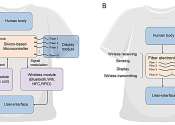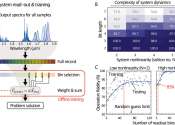Technique prints flexible circuits on curved surfaces, from contact lenses to latex gloves
Researchers from North Carolina State University have demonstrated a new technique for directly printing electronic circuits onto curved and corrugated surfaces. The work paves the way for a variety of new soft electronic ...
Nov 21, 2022
0
71









